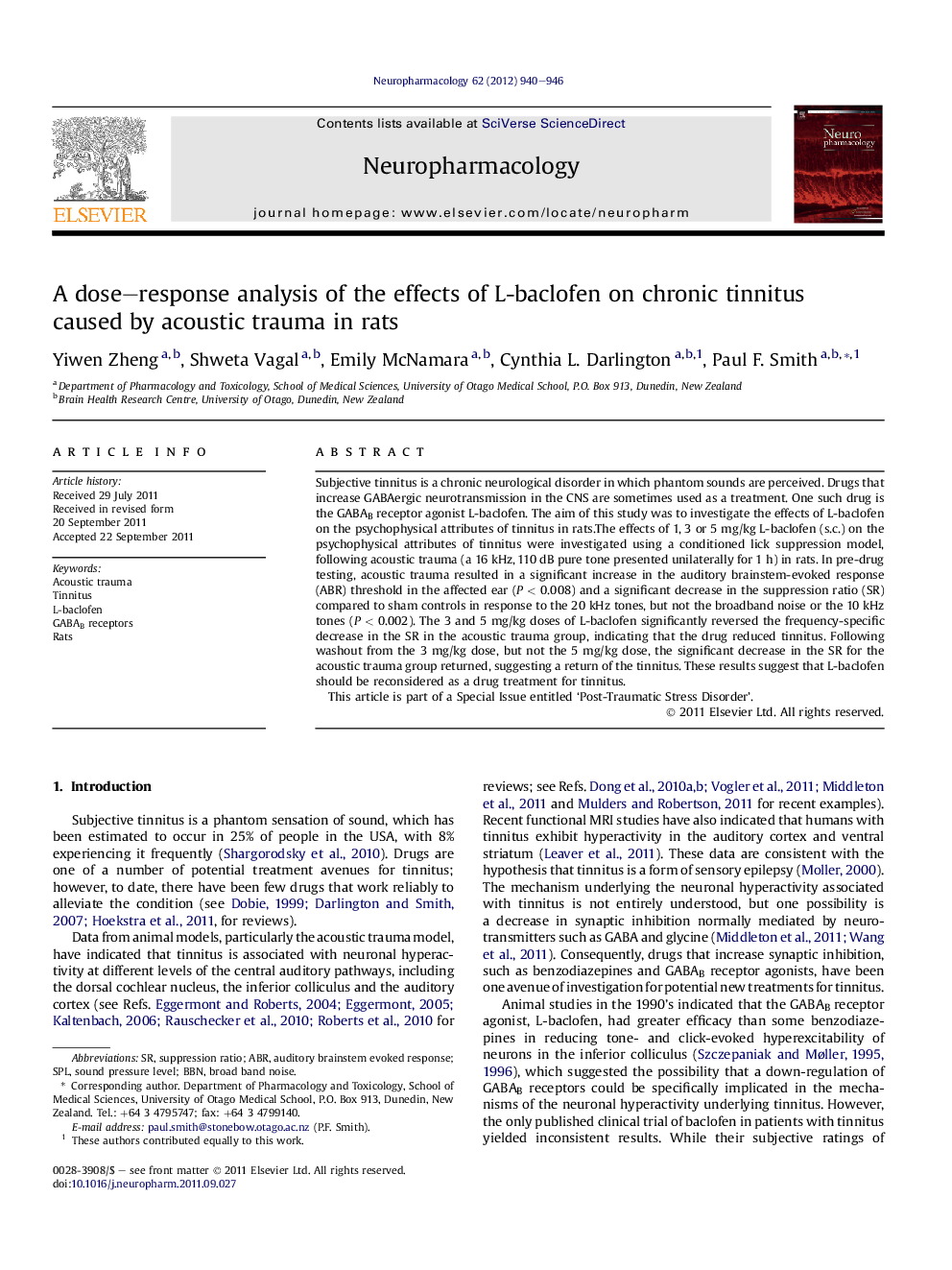| Article ID | Journal | Published Year | Pages | File Type |
|---|---|---|---|---|
| 2493793 | Neuropharmacology | 2012 | 7 Pages |
Subjective tinnitus is a chronic neurological disorder in which phantom sounds are perceived. Drugs that increase GABAergic neurotransmission in the CNS are sometimes used as a treatment. One such drug is the GABAB receptor agonist L-baclofen. The aim of this study was to investigate the effects of L-baclofen on the psychophysical attributes of tinnitus in rats.The effects of 1, 3 or 5 mg/kg L-baclofen (s.c.) on the psychophysical attributes of tinnitus were investigated using a conditioned lick suppression model, following acoustic trauma (a 16 kHz, 110 dB pure tone presented unilaterally for 1 h) in rats. In pre-drug testing, acoustic trauma resulted in a significant increase in the auditory brainstem-evoked response (ABR) threshold in the affected ear (P < 0.008) and a significant decrease in the suppression ratio (SR) compared to sham controls in response to the 20 kHz tones, but not the broadband noise or the 10 kHz tones (P < 0.002). The 3 and 5 mg/kg doses of L-baclofen significantly reversed the frequency-specific decrease in the SR in the acoustic trauma group, indicating that the drug reduced tinnitus. Following washout from the 3 mg/kg dose, but not the 5 mg/kg dose, the significant decrease in the SR for the acoustic trauma group returned, suggesting a return of the tinnitus. These results suggest that L-baclofen should be reconsidered as a drug treatment for tinnitus.This article is part of a Special Issue entitled ‘Post-Traumatic Stress Disorder’.
► We tested whether the GABAB receptor agonist L-baclofen could reduce tinnitus. ► Tinnitus was induced in rats using acoustic trauma. ► L-baclofen significantly reversed the frequency-specific tinnitus. ► L-baclofen may be useful as a treatment for tinnitus.
